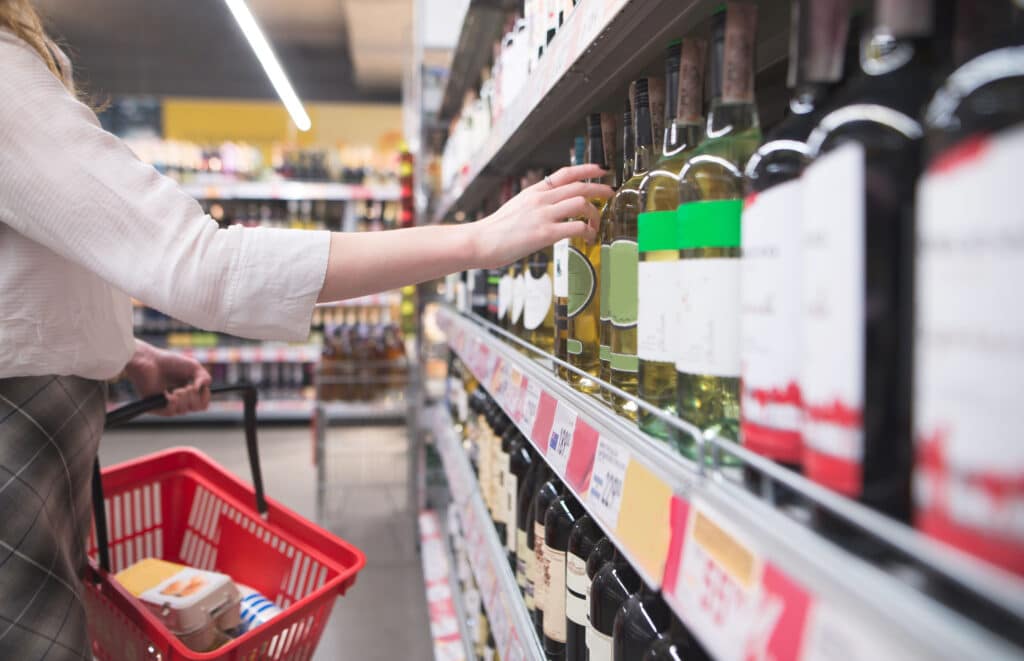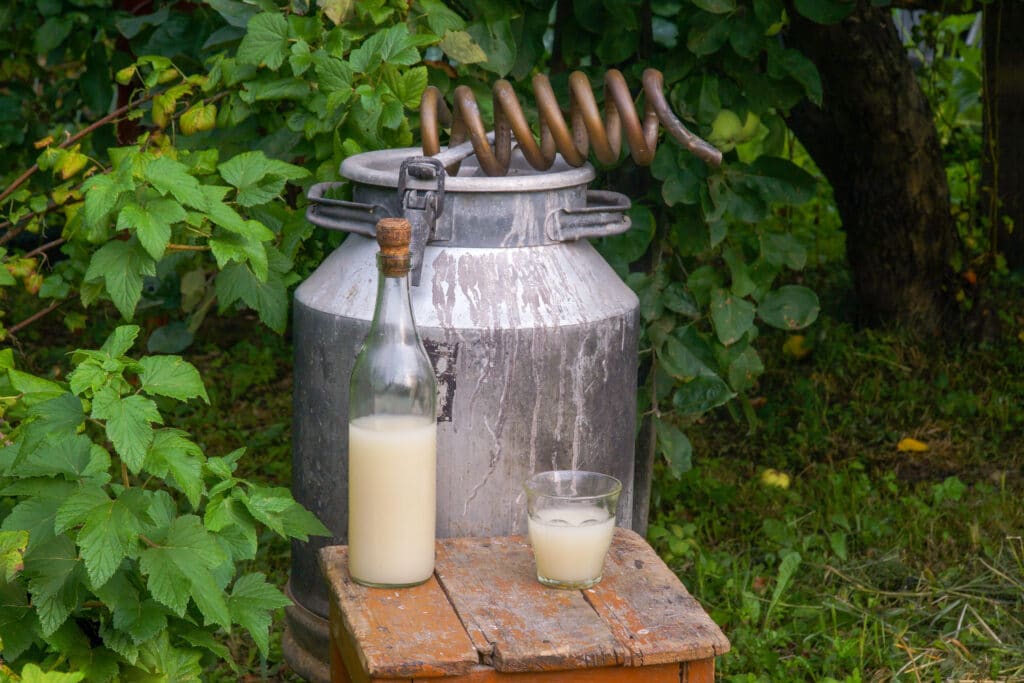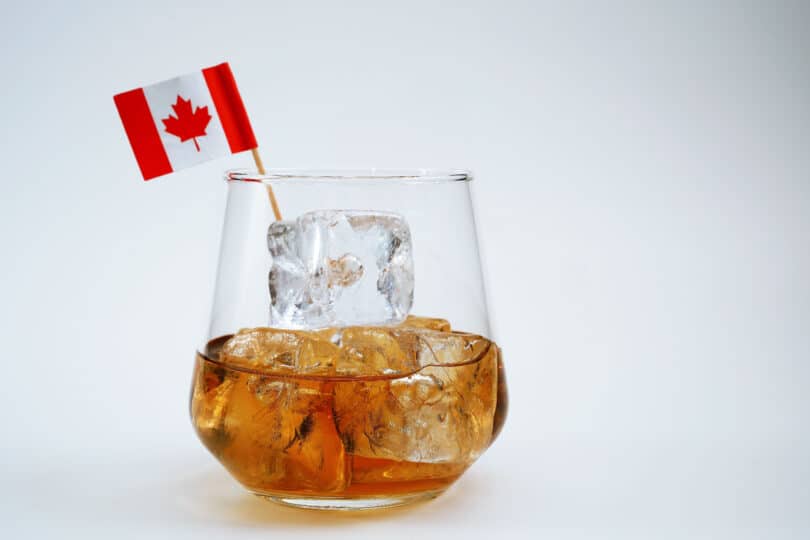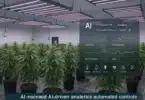A recent op-ed about the Canadian alcohol market, claims that the weedliest country, is not as drunk as it was before. Per the author, in Canada, weed sales are up, and alcohol sales are down. Does this make sense? And is it correct?
New op-ed says Canada alcohol sales down
Alcohol has been the leader in the drug world for pretty much ever. While cannabis is often spoken about as the most popular drug, that’s if alcohol is omitted. Perhaps this is because some don’t think of alcohol as a drug. But it is, and it’s one of the most accessible ones. This op-ed has seemingly gotten a lot of re-posting and attention, but I cannot find the report it takes from. Nor can I find it in a search. Which means all information I can give about it, comes via the op-ed from Retail-Insider, only.
According to the author, a retail sales update by the federal government, shows that sales for liquor and beer in Canada have gone down in the past year. It specifically cites the decrease from May-June 2023 as a .9% slip. Compared to where the market was last year, it’s a decrease of apparently 2.8%. The writer then goes on to point out something else.
First, he speaks of cannabis sales going up by 3.3% in Canada (I presume he means by this time last year, same as the 2.8% statistic). Then he says, “Other sources may point to different numbers, but it appears as though Canadians are generally buying less booze now.” This makes it sound like wherever, or however, he got to what he got to, that this is not a closed case.

Are alcohol sales actually down in Canada?
Seemingly not at all. Nothing points to a downturn in alcohol sales. And nowhere is it published, that Canada alcohol sales have gone down. At least not in one place that I’ve found. Looking into alcohol sales makes clear that the writer of the op-ed was unclear in his own writing. Or rather, not specific about what he was talking about. Something that might have been clearer, if he had attached his informational source.
According to Statista, retail beer, wine, and liquor sales were up to CAD 2.24 billion at the end of December of 2022. This was, in fact, an increase of about CAD 6 million as compared to the previous December. According to Statista, monthly alcohol sales have gone up steadily in the past five years, in Canada.
Want to see it for yourself? Statista has a nice little graph that shows the yearly sales for the last five years. As of right now, there aren’t numbers up for 2023, so a comparison cannot be made specifically between 2022 and 2023. However, as end of year 2022 numbers are given, and it was all increase until then, its hard to imagine that sales suddenly plummeted. Perhaps sales were down from May to June, and perhaps when looking at just last year’s June to this year’s. But to say there is actually a downward trajectory, is wildly misleading; and not backed by statistical sales information out of Canada.
But wait, are people drinking less??
One thing that is interesting, is that the general increase in sales, doesn’t mean that people are drinking more. This is what the op-ed writer was actually talking about, although he referred to this as ‘sales’ and not ‘volume’, or ‘volume of sales.’ The word ‘sales’ usually means a monetary amount brought in. Volume indicates the amount sold. Wildly different things, which are important to understand the difference between; as they are often not tied as closely as we think they should be. And this is why its important for writers to reference their work.
Last year, Statistics Canada did put out an article about increasing sales, and decreasing volumes. A result of higher prices. This means that less alcohol was sold, but not that the sales market brought in less money. To say retailers are seeing decreased sales, isn’t true; as the value of what’s sold, continues to increase. In last year’s article, Statistics Canada said that alcohol had a 2.8% inflation rate between March 2021-2022. A decline was seen when this happened, which was the first since looking at the years 2013-2014.
Regardless of volumes however, nothing was lost; which says a good bit about prices rising. Otherwise, a decrease in the volume sold, generally equals a decrease in sales revenue. Instead, the lesser volume sold, resulted in CAD $26.1 billion from March 31st 2021 – 2022. This amount is 2.4% higher than the previous year.

So, for example, the volume of wine sold in Canada dropped 4% between 2021-2022. However, within that same time frame, wine sales brought in $8.1 billion, a rise of 2.1%. In terms of beer, the volume went down 2.8% between 2021-2022. Beer sales did experience their own decrease in sales, but only .7%, much less than the volume decrease percentage. On the other hand, ciders and coolers went up in volume of sales; the volume increased by 13.5%. So in the case of those drinks, the market seems to be growing.
Is this related to cannabis market?
Whether the new cannabis market directly affects alcohol sales, is not explicitly known. It could be a factor in drinking habits, but we don’t have an arrow pointing from one thing to another. The two could be related, but they also might not be. If cannabis did affect alcohol, we’d be looking solely at volume of sales, not sales revenue; and whether an increase in volume on one end, leads to a decrease on the other.
There does seem to be a good argument that cannabis might reduce the desire to drink for some people. But this is certainly not a definite thing. It could also be less about a desire for one over the other technically, but a matter of money. Maybe people can only afford one or the other. Or more of one than the other. However, if rising prices really do dissuade people from drinking, then the country should be worried about pricing a legal weed market above a black market.
There is a comment on the op-ed by a local Canadian who says plainly that the younger generation has a hard time affording alcohol. Or at least, the higher quality ones much preferred are too expensive. If this is true, it actually speaks massively to Canadians being responsible enough people to know when to stop blowing money. In plenty of places, the desire for certain mind-altering substances can outweigh the desire to pay rent, or other necessary life costs. Either way, the commenter gives insight into possible Canadian decision making when it comes to buying alcohol.
Is there an illicit alcohol market?
However, there’s another big issue. It’s easy to forget that alcohol prohibition once swept over much of the world, including Canada. It’s not illegal now, simply because it couldn’t be stamped out. Which seems to be the same reason we have legal weed markets opening. In fact, prohibition spawned such an impressive illegal market; that it’s quite odd to think it ever went away. Even if legal sales are possible, and alcohol is everywhere.
We hear about black markets for other drugs way more than alcohol. In fact, I’ve never heard about an alcohol bust in the same way that I hear of cocaine, or methamphetamine, or cannabis busts. After all, it doesn’t have to be secretly brought over borders, or even made in clandestine ways. Not for many decades. But does that mean its not? Logically, we have to know the answer is no. Just like it seems like cigarettes are a regular above-board market, until you read about how big the black market is. This includes vapes, and the targeting of companies like Juul and Elf Bar.

There are, however, a few news stories out that indicate we might not always get the full story on alcohol. Like this 2022 story about a bust in Quebec, that had to do with the resale of alcohol products. This only accounted for 14 communities though, so we are talking small potatoes. Even so, the products, sold in Nunavik, were sometimes 8-12X the original cost. In this case, the alcohol was transported to communities that actually do not allow it.
To give an idea of how big the illicit alcohol market is, the Organisation for Economic Co-operation and Development (OECD) put out a report in 2022 called Illicit Trade in High-Risk Sectors: Implications of Illicit Alcohol for Public Health and Criminal Networks. In it, the OECD quotes WHO data that says 25.8% of worldwide alcohol sales in 2016, were illicit. The expectation by 2025, is for 27.7% of global alcohol sales to be illicit. Though this does vary greatly by country, it immediately says that illicit alcohol, is actually huge.
There was not specific information about Canada’s illicit market, but I bring it up, because it implies something beyond people buying less alcohol. What it implies, is that people might be buying a lower volume of legal alcohol. It seems very likely that raising prices in the alcohol market, might lead Canada to a much bigger illicit alcohol market. After all, let’s remember, prohibition didn’t stop people from drinking.
Conclusion
It’s quite possible that Canada is pushing its legal alcohol market, into illicit territory by allowing inflation to raise prices so much. As of now, Canada does not have a decrease in alcohol sales revenue, but it does in the volume of legal alcohol sold. This indicates less people are buying legally with higher prices. And the rest? Well, either they stopped drinking, or we just don’t hear about the market they’re buying from.
Hello everyone. Thanks for joining the family at Cannadelics.com. We are an independent publication in the cannabis and psychedelics space, reporting on the most relevant stories in the worlds of weed and hallucinogens. Come by often to stay up-to-date on everything; and get signed up for the Cannadelics Weekly Newsletter, to ensure you always have the current low-down.







